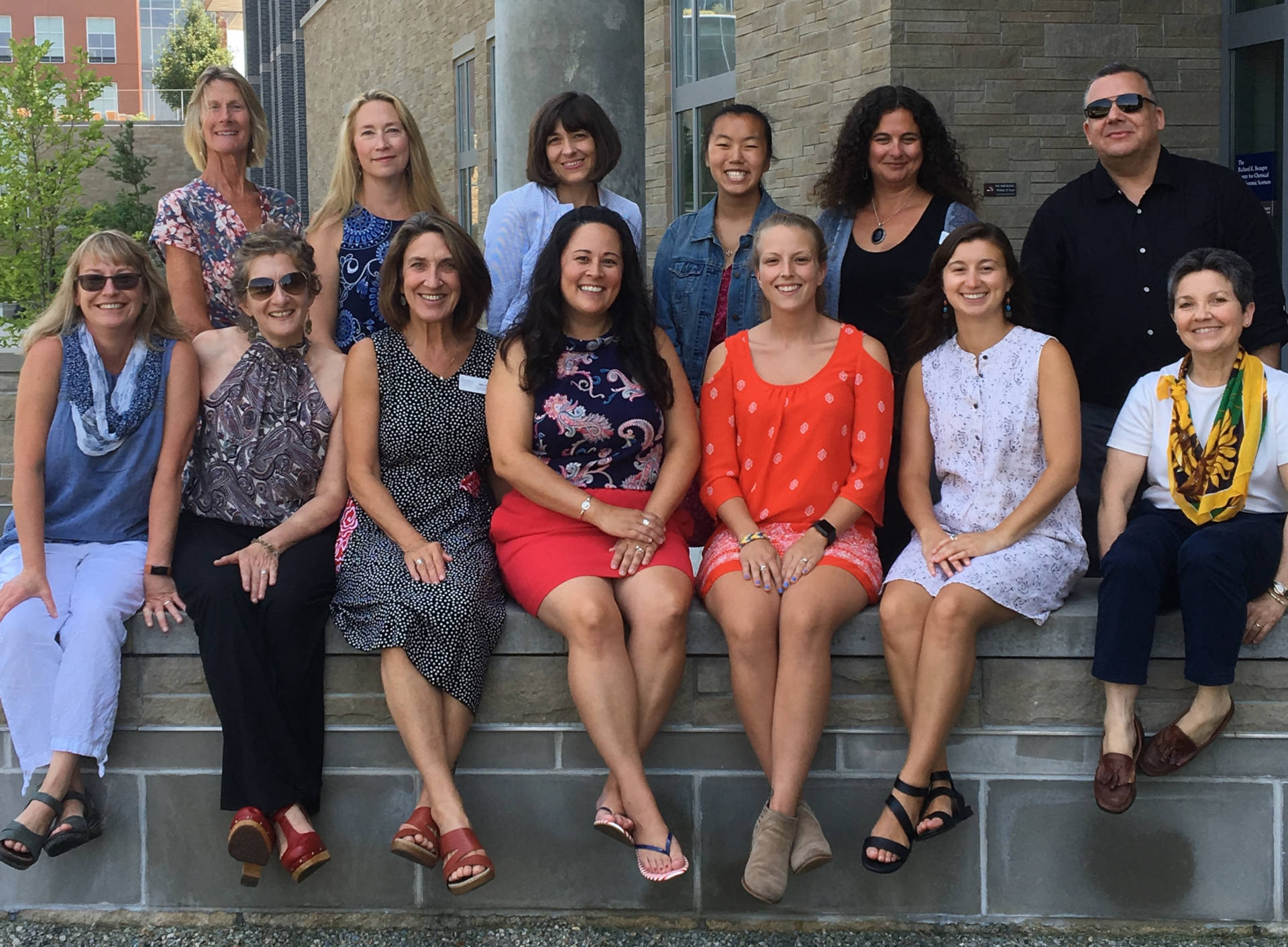College of Health Sciences partners with RI Association for the Education of Young Children on mentoring, training program
The teachers and directors at both Child Development Centers run by the College of Health Sciences’ Department of Human Development and Family Science will help educate early childhood education teachers thanks to a recent grant.
The Child Development Centers, along with Dr. Hyunjin Kim from the Early Childhood Education program, have partnered with the Rhode Island Association for the Education of Young Children (RIAEYC) on a grant to provide technical assistance, mentoring and training to early childhood teachers at early childhood and care centers in Rhode Island. The work is part of a pilot apprenticeship program in the early childhood education and care field.
“CDC teachers and directors from URI are working directly with teachers to provide high-quality and evidence-based mentoring in an effort to improve workforce competencies,” said Professor Sue Adams, chairperson of DHF.
The Rhode Island Association for the Education of Young Children is the state affiliate of the National Association for the Education of Young Children. The association runs several educational programs in the state, including the T.E.A.C.H. Early Childhood Program, which provides opportunities for child care workers to complete higher education course work in early childhood education while providing sponsoring childcare programs an opportunity to develop their workforce.
The faculty and staff of HDF and URI Child Development Centers are no stranger to educating early childhood educators, having organized the Early Childhood Institute, dedicated to the professional development of early childhood teachers and administrators from around the state. The URI Child Development Centers in Kingston and Providence have hosted teachers and administrators for coaching and mentoring from URI early childhood education experts. The workshops designed to improve teaching techniques, and share best practices from their own experiences.
This project was made possible by Grant Number 90TP0027 from the Office of Child Care, Administration for Children and Families, U.S. Department of Health and Human Services. Its contents are solely the responsibility of the authors and do not necessarily represent the official views of the Office of Child Care, the Administration for Children and Families, or the U.S. Department of Health and Human Services.

